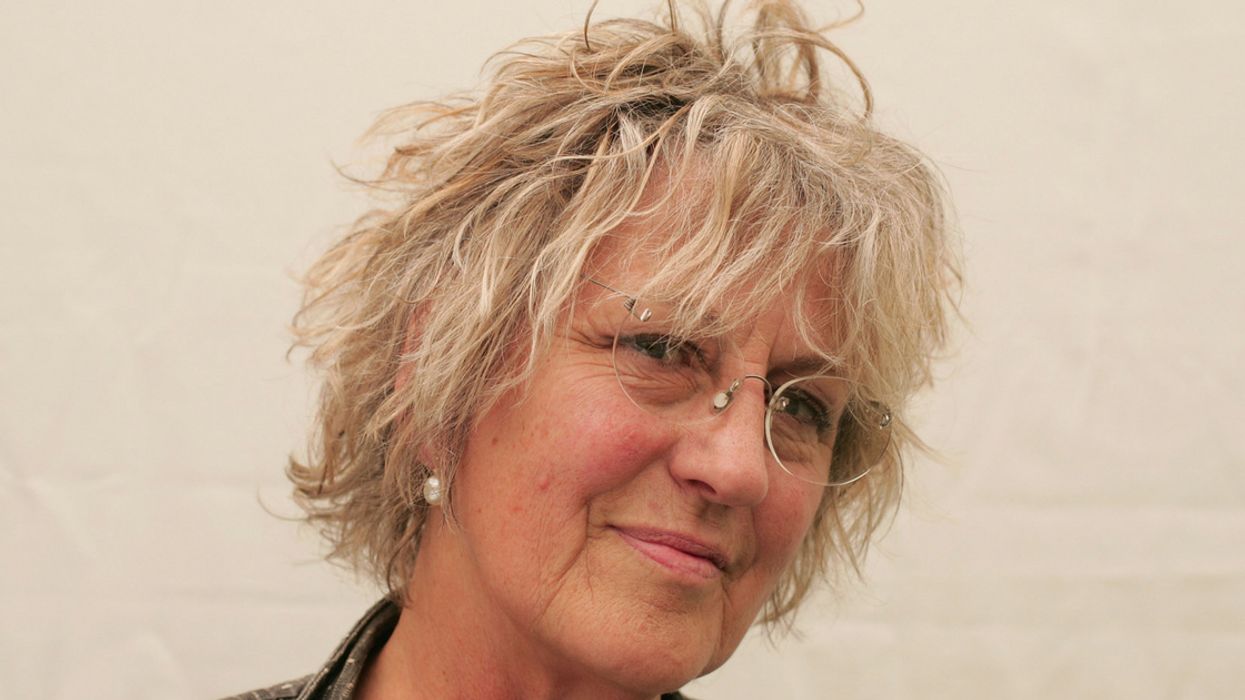Germaine Greer, the Australian feminist who has been known as one of the major voices of feminism's second wave in the late 20th century, has sparked a major controversy after comments at Wales' Hay Festival, where she claimed rape is often nothing more than "bad sex."
At the event, Greer commented:
Most rape is just lazy, just careless, just insensitive.
Every time a man rolls over on his exhausted wife and insists on enjoying his conjugal right, he is raping her. It will never end up in a court of law.
Instead of thinking of rape as a spectacularly violent crime – and some rapes are – think about it as non-consensual, that is, bad sex.
Sex where there is no communication, no tenderness, no mention of love.
When asked what an appropriate punishment for rape might be, Germaine responded:
Two hundred hours of community service would do me. I have suggested maybe a little tattoo would be a good thing, maybe an R on your hand. I'd prefer it on the cheek really.
Feminists from around the world are sounding off against Germaine's thoughts. Katie Russell, a spokesperson for Rape Crisis England and Wales, commented to Indy 100:
If penetrating another person's body without their consent is not an act of violence, what is? Rape is an inherently violent crime, regardless of whether visible external injuries are sustained.
Through our 40+ years' frontline experience of listening to and supporting women and girls who've been raped, we know it often has long-lasting and wide-ranging impacts, including post-traumatic stress symptoms and Disorder.
Many of those we work with don't identify as victims or 'rapees' but as survivors, of an horrific and unjust experience but one that they choose not to let define them.
But they have undoubtedly been victims of a very serious crime and we use each individual's preferred language to talk about what they've been through.
Regardless of how those who've been raped identify, we listen to, believe, support and respect them. The criminal justice system already routinely lets them down.
Reducing sentences or declassifying crimes would do nothing to improve justice or reduce sexual violence.
Hannah Price, a rape victim and founder of Revolt Assault, responded:
Just because a rape isn't considered violent, doesn't mean it doesn't cause injury or trauma.
It's still a violation, and is something that will stay with me forever. To be able to express and believe comments like that, you must be coming from a position of privilege; where you have access to all the support, resources and legal team you need.
Unfortunately most rape victims don't have that luxury, and suffer alone and in silence. We already know that sexual violence is at a shockingly high level, lowering the sentence is only going to further confirm that we accept this behaviour and show perpetrators that you can get away with rape. She's right in saying that the system isn't working right now, but that has been fuelled by society letting sexual harassment and assault to normalised, rather than unacceptable.
I speak with rape survivors all the time, and there's no way you could hear their stories and say what happened to them was 'bad sex', or look them I the eye and claim that they received no injuries.
Brandon Cook, a male rape survivor, also spoke out in a Facebook post, which was immediately buried in mocking comments:
Germaine's words betray a complete lack of knowledge when it comes to the traumatic impact of rape - and ultimately of how the violence it enacts is often that which cannot be felt until much later.
The idea of punishments such as "tattooing R upon their cheek" for rapists might seem endearing to those particularly angry and in recovery from rape, but it does nothing to ameliorate the struggle felt by survivors.
These comments are wholly dangerous in that they invalidate the suffering of survivors while also giving a green light to those seeking to hold power over another through an act of rape, because higher-profile figures like Greer don't believe their intentions to be anything other than merely sexual, rather than anything more insidious in nature.
If Greer had any supporters left on Twitter, they're gone now.
If you don't stand up for victims of sexual assault, should you be considered a feminist?
H/T - Indy 100, Getty Images














 @DuncanCecil/X
@DuncanCecil/X @@realDonaldTrump/Truth Social
@@realDonaldTrump/Truth Social @89toothdoc/X
@89toothdoc/X @xray_media/X
@xray_media/X @CHRISTI12512382/X
@CHRISTI12512382/X
 @sza/Instagram
@sza/Instagram @laylanelli/Instagram
@laylanelli/Instagram @itssharisma/Instagram
@itssharisma/Instagram @k8ydid99/Instagram
@k8ydid99/Instagram @8thhousepath/Instagram
@8thhousepath/Instagram @solflwers/Instagram
@solflwers/Instagram @msrosemarienyc/Instagram
@msrosemarienyc/Instagram @afropuff1/Instagram
@afropuff1/Instagram @jamelahjaye/Instagram
@jamelahjaye/Instagram @razmatazmazzz/Instagram
@razmatazmazzz/Instagram @sinead_catherine_/Instagram
@sinead_catherine_/Instagram @popscxii/Instagram
@popscxii/Instagram
